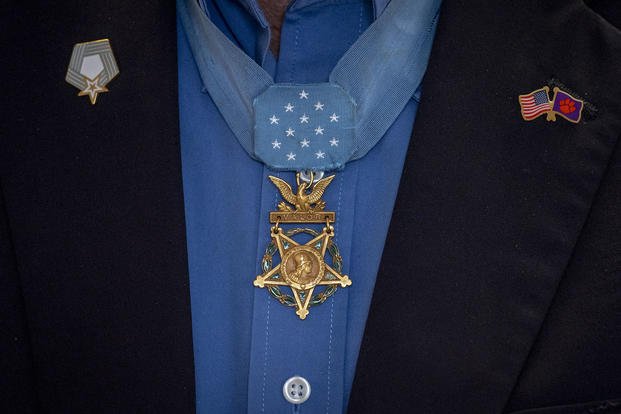Quartermaster Sacrificed Himself To Help Fellow Wreck Survivors To Safety
In 1997, seven Black veterans of World War II belatedly were awarded the Medal of Honor. The honorees served in combat arms units -- they were infantrymen, tankers and the like -- with one notable exception: Pvt. George Watson, a member of the Army's 29th Quartermaster Regiment.
Watson hailed from Birmingham, Alabama. On March 8, 1943, he was far from home in the Pacific theater. His unit was on board the Dutch steamer USAT Jacob near Porlock Harbor, New Guinea, when it came under sudden and devastating attack from Japanese bomber planes. The ship sustained several direct hits and had to be abandoned. Chances of survival seemed slim to the frightened men floating helplessly in the ocean as enemy fire rained down.
At that moment, Watson demonstrated the courage under fire worthy of the most heroic warrior. Without thought for his own safety or survival, he swam back and forth, dragging injured and helpless comrades to the few available life rafts. No one is certain how many men he saved, but it is certain that he did so "over and over and over," as President Bill Clinton noted, until his own strength was exhausted. Fatigued by his efforts, Watson was unable to get clear of the ship's tow, and he disappeared beneath the waves.
For these actions, Watson became the first Black soldier to receive the Distinguished Service Cross, but his courage and selflessness at last received due recognition when his Medal of Honor was accepted by the sergeant major of the Army during the 1997 ceremony. Because Watson had no family members to claim his honors, his medal and other awards and citations are displayed at the U.S. Army Quartermaster Museum at Fort Lee, Virginia.
Interested in Joining the Military?
We can put you in touch with recruiters from the different military branches. Learn about the benefits of serving your country, paying for school, military career paths, and more: sign up now and hear from a recruiter near you.















